America from Scratch - Season 1
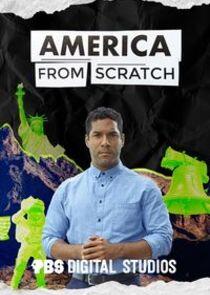
Season 1

Episodes
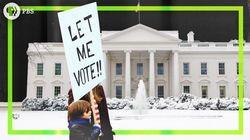
Should 12-Year-Olds be Allowed to Vote?
Voting age takes on new relevance today as young people across the country are making their voices heard in the wake of the Stoneman Douglas High School shooting earlier this year. Washington, D.C., is on track to lower the voting age to 16.
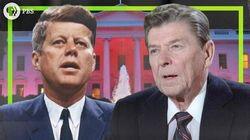
Should We Have a President?
We spend a lot of time thinking, worrying, debating—and, yes, fighting—over who should be our president. But is that the best use of our political energy? In this episode of "America From Scratch," we explore the idea of eliminating the presidency entirely—and some other alternatives to our current political structure. Experts share how you can make the biggest difference in government today.
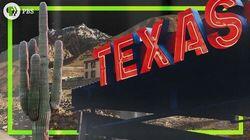
What If There Were No States?
States: they're a fact of American life we take largely for granted. But why do we need them at all? Some experts believe that chopping up our country in a different way would make a lot more sense. So, if we started over today, would we keep the somewhat wacky geography of our states intact, or would we move to perhaps a more logical system that throws state lines out the window?

Should We Rewrite Our Constitution?
The average lifespan of a country's constitution is 12 years. But the U.S. Constitution has been around for more than 200. Is it time for a rewrite? And if we did re-do our user manual, who would lead the charge?

Should the U.S. Require Half of Its Government to be Female?
Women make up about half of the U.S. population. But Congress is only 20 percent women, and the U.S. lags behind more than 100 other countries when it comes to gender parity in government. Research has shown that women legislate differently, focusing on issues and proposing bills that male lawmakers typically don't.

Should It Be Illegal for Facebook to Sell Your Data?
Freedom of speech. Freedom of religion. Freedom of…private data? The United States Bill of Rights protects a great many freedoms but when it was drafted, our Founders had little idea that our possessions could one day be intangible.
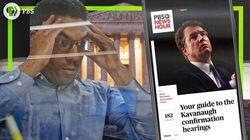
Should We Elect Our Supreme Court Justices?
The right to an abortion, the right to marry, the Dred Scott decision—some of the United States' most controversial, historic and influential legal decisions have been made for us by a group of people we didn't get to choose.

Should We Have Mandatory Military Service?
More than 60 other countries require their adult citizens to serve in the military. If the U.S. were to start over today, would we make it a requirement?

Should We Make Voting Mandatory?
Imagine being required to vote by penalty of law. Sound a little extreme? Maybe. But for other countries around the world, it's a reality, and it helps get people to the polls. Meanwhile, in the U.S., only 55 percent of eligible people cast a vote for president in 2016.
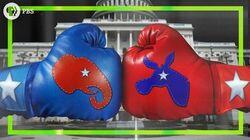
Should We Have More Than 2 Major Political Parties?
We blame a lot of our political dysfunction and polarization on our two-party system. So why do we keep it around? How did we get here? And what would happen if we had a lot more major parties? Host Toussaint Morrison investigates as we continue our democratic thought experiment.
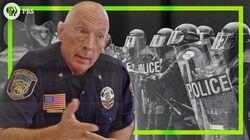
Should We Police Our Police?
The people of the United States are not united on how they view law enforcement officers. But the majority would like to see some type of police reform. If we started over today, would we increase national regulations on the thousands of individual police departments across the country?
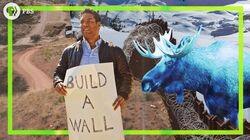
Should the USA Build a Wall on BOTH of Its Borders?
In this episode of "America From Scratch" we explore the security gaps on our northern border, as well as why our southern border gets so much media attention. Former federal prosecutor Matt Pinsker speaks on his experience on the southern border dealing with drug cartels. and an asylum seeker talks about how his asylum process has been a fight for safety.

Should We Pay People to Move to Mars?
How long until people are permanently living on Mars, and how will we convince them to go there? In this episode of "America From Scratch" we explore the ways the government could motivate people to move to Mars and we draw comparisons to when settlers were incentivized to move out West. NASA tells us about their Moon to Mars mission, and why its important for us to become a multi-planet species.
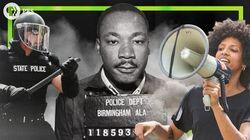
What If Protesting Was Illegal?
1 in 5 Americans have participated in a protest since 2016. Protests have dominated national news headlines for the last few years, but what if these protests were illegal? Toussaint talks to Alicia Garza the cofounder of Black Lives Matter on whether or not protesting can go too far. He also meets with local lawmakers of a bill that would increase penalties for protesting on highways.
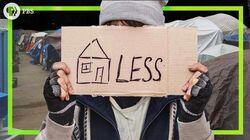
Should Shelter Be a Right?
In Maslow's hierarchy of needs he lists shelter at the base of the pyramid making it one of the few things most essential for survival. Today over half a million people live without permanent shelter across the United States. If we were founding our country today, would we ensure life, liberty, and shelter for all citizens? Toussaint visits a Minneapolis shelter to find out more.
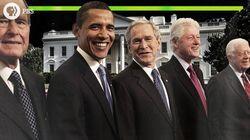
Do We Elect Narcissistic Leaders?
A study finds that politicians score higher than other professionals on the Narcissistic Personality Inventory, with a spike in characteristics like superiority, arrogance, and entitlement. Do we reward these characteristics with the way we vote? What would happen if we selected our leaders randomly, like we select our jurors for jury duty?
Recently Updated Shows
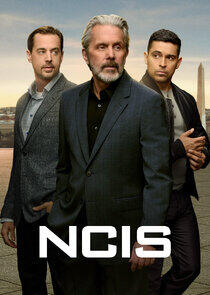
NCIS
NCIS (Naval Criminal Investigative Service) is more than just an action drama. With liberal doses of humor, it's a show that focuses on the sometimes complex and always amusing dynamics of a team forced to work together in high-stress situations. Leroy Jethro Gibbs, a former Marine gunnery sergeant, whose skills as an investigator are unmatched, leads this troupe of colorful personalities. Rounding out the team are Anthony DiNozzo, an ex-homicide detective whose instincts in the field are unparalleled and whose quick wit and humorous take on life make him a team favorite; the youthful and energetic forensic specialist Abby Sciuto, a talented scientist whose sharp mind matches her Goth style and eclectic tastes; Caitlin Todd, an ex-Secret Service Agent; and Timothy McGee, an MIT graduate whose brilliance with computers far overshadows his insecurities in the field; Assisting the team is medical examiner Dr. Donald "Ducky" Mallard, who knows it all because he's seen it all, and he's not afraid to let you know. From murder and espionage to terrorism and stolen submarines, these special agents travel the globe to investigate all crimes with Navy or Marine Corps ties.

Landman
Set in the proverbial boomtowns of West Texas, Landman is a modern day tale of fortune seeking in the world of oil rigs. The series is an upstairs/downstairs story of roughnecks and wildcat billionaires fueling a boom so big, it's reshaping our climate, our economy and our geopolitics.

The Creep Tapes
Based on a collection of videotapes in the secret vault of the world's deadliest and most socially uncomfortable serial killer, who hires his victims to film him for the day under false pretenses, each episode exposes a new victim from one of the fabled 'Creep Tapes'.

America's Funniest Home Videos
ABC's longest-running primetime entertainment show, America's Funniest Home Videos, returns for season 36 this fall with the same mission -- giving families something genuinely funny to enjoy together on Sunday nights.
"AFV," the longest-running primetime entertainment show in ABC history, returns for season 36 with the same mission - to provide viewers with hysterical moments that fly by at a dizzying pace.

The Real Housewives of Potomac
Just up the river from our nation's capital lies a hidden gem—Potomac, Maryland. Its rolling hills, gated mansions, sophisticated prep schools, and exclusive country clubs all serve to keep the area invitation-only. Sprinkled throughout this community are a handful of old-line, wealthy African-American families who have historically broken racial barriers to provide a life of privilege for their children. The Real Housewives of Potomac follows the upscale lives of six intriguing, well-to-do women: Gizelle Bryant, Katie Rost, Karen Huger, Charrisse Jackson-Jordan, Robyn Dixon, and Ashley Darby, all of whom have fought for their places in this society by way of legacy or marriage. In a town where entry is granted only through class, pedigree, and lineage, how far will these ladies go to secure their spot at the top of this prestigious circle?